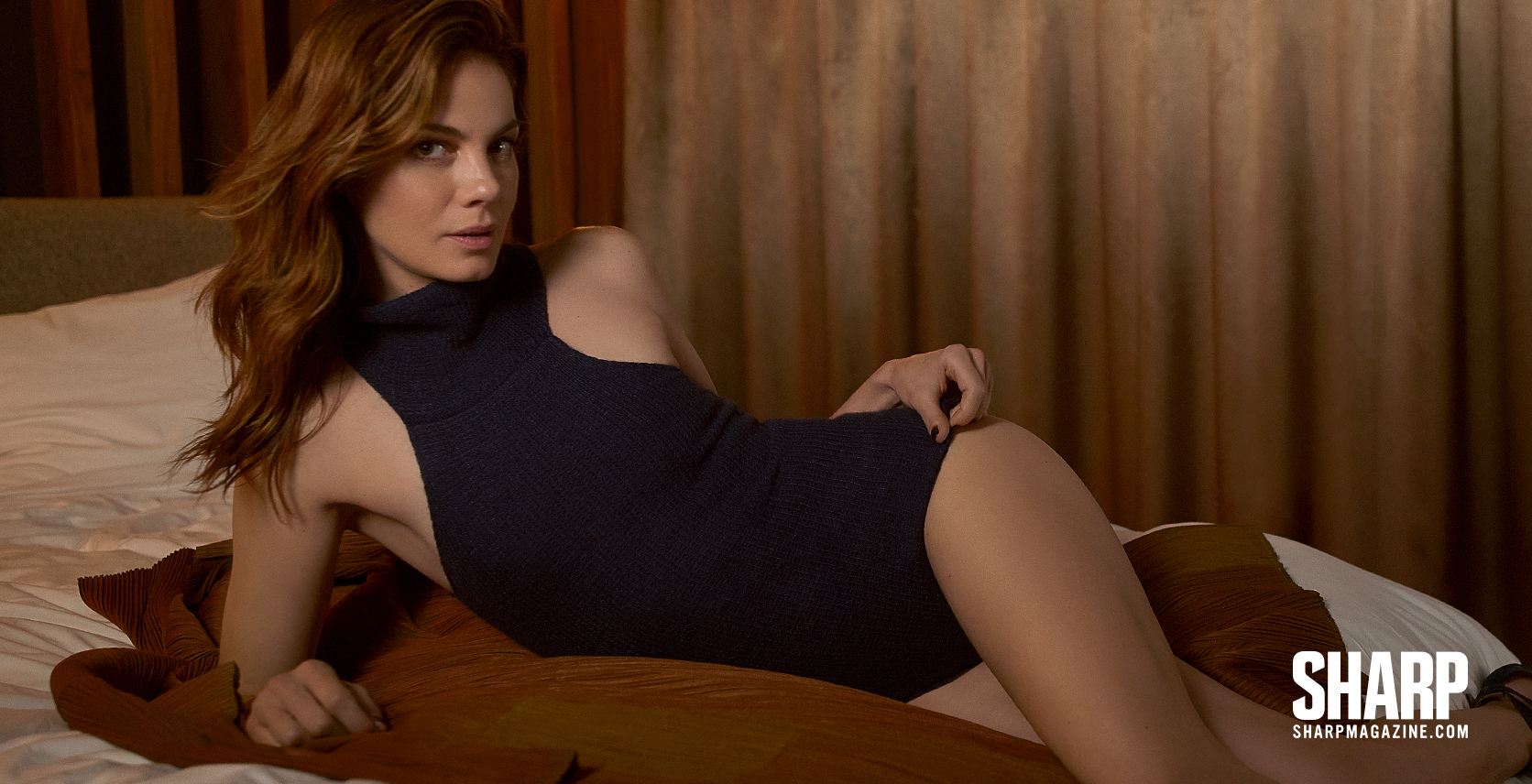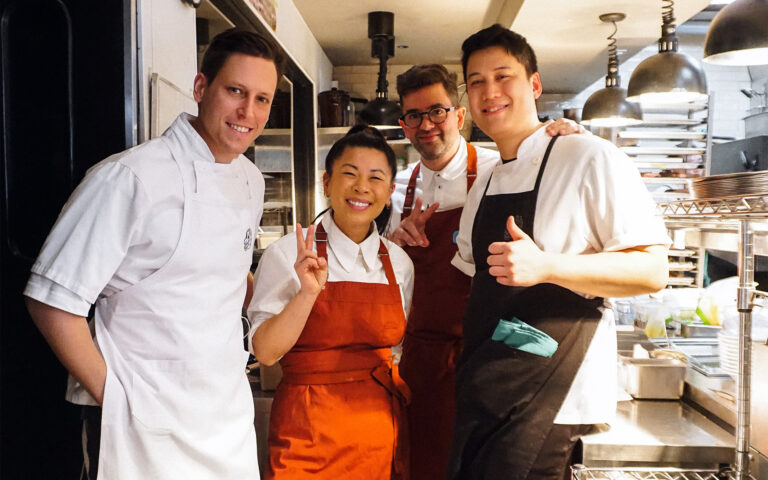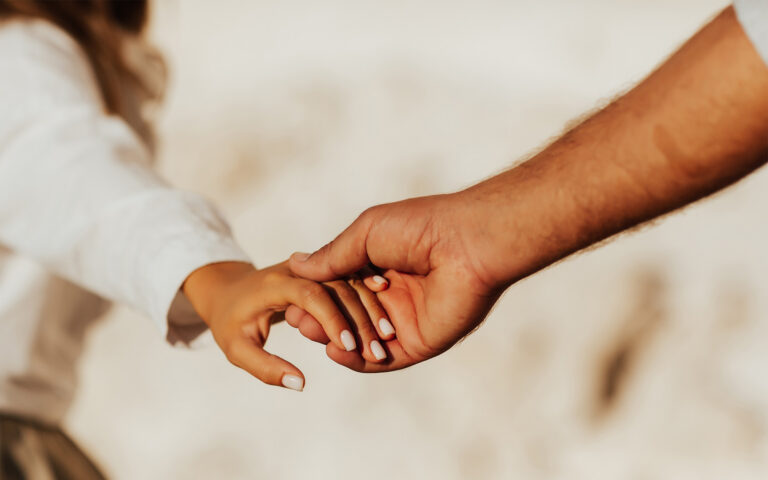To hear Michelle Monaghan describe it, her morning was idyllic, if comfortingly normal. She walked her two kids to school, one latched on to each hand. They weren’t fighting. They weren’t being wrestled to get where they needed to go. It was one of those beautiful, forgettable moments of parenthood, of life, where the only response — if you have the presence of mind to even notice it — is to feel gratitude and a contented sense of pride. Her kids won’t remember this one moment, and won’t understand why their mom seemed so genuine in her affection on that particular morning, but that’s exactly as it should be.
It’s a nice little anecdote. Nicer still is the fact that Michelle Monaghan shared it. While there’s a certain amount of pleasure in not knowing anything about the real lives of the celebrity women we fall in love with — and Michelle Monaghan is perhaps the easiest actress working today to fall for, a woman who reminds you of a hometown girl you never quite got over — the intimacy of simple, real conversation is even better. Michelle Monaghan gets excited by agreement, catches your experiences and tosses you some of hers right back. She laughs. She makes you laugh. Talking to her is shockingly, minute-devouringly easy.
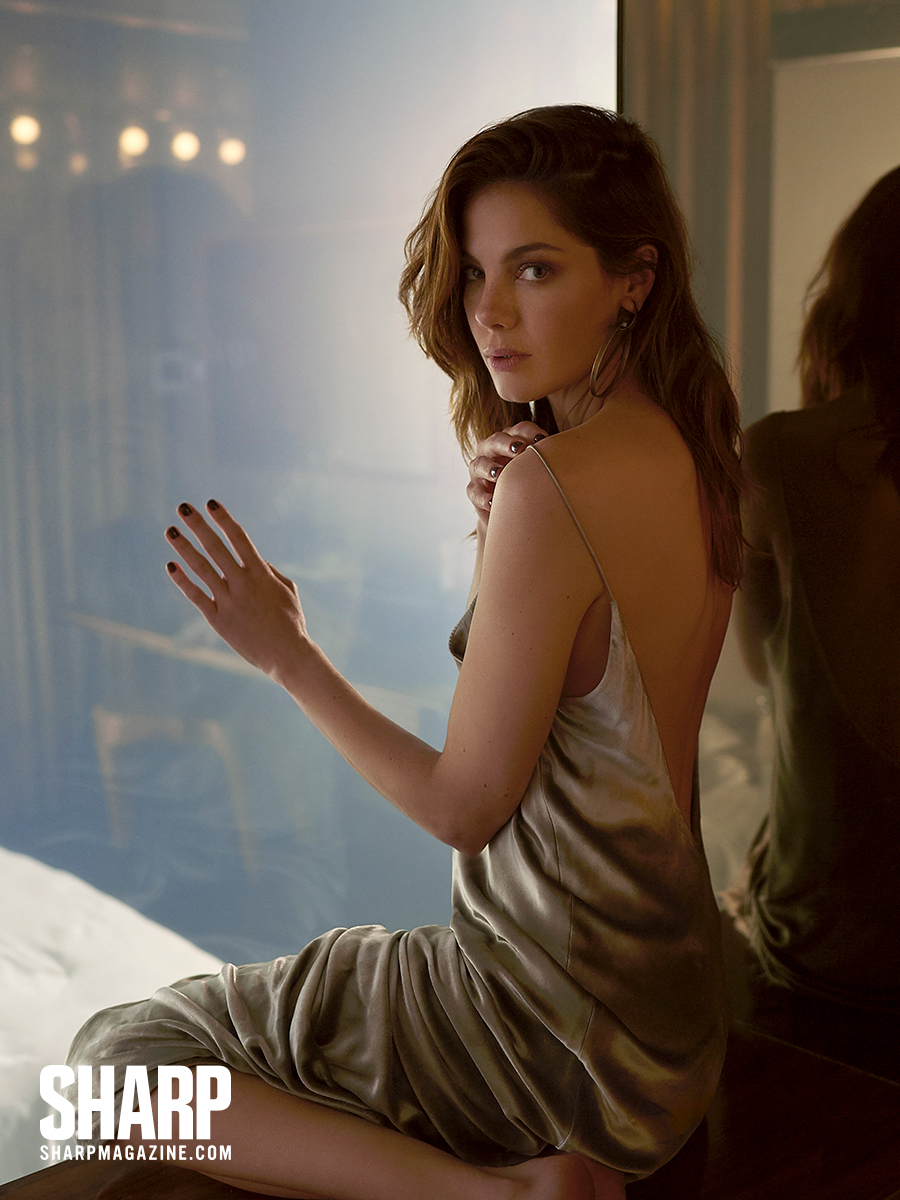
Or maybe I’m just biased.
See, when men write about women, especially for an audience of other men, we write like we’re smitten — shocked and awed that a Beautiful Woman has deigned to speak with us, the bookish kid at the back of the class. Grown men suddenly become their adolescent selves, only with a better vocabulary. Mostly it’s disingenuous. Men write that way about women because wonder is the expected response. But Michelle Monaghan literally does remind me of a hometown girl I never quite got over. Usually the transformative power of celebrity-fuelled nostalgia travels down — we find a Normal Person more attractive when we realize they share a passing resemblance to a Famous Person. But with Michelle Monaghan it flows in the other direction, too. I would submit that this is part of her preternatural charm, but again, maybe that’s just me.
Look back through your rogues gallery of previous relationships and you’ll see your type emerge. We all have one. In the general election for your affection, you’ll notice certain key demographics making up your base. A type is more than a “thing” (you know, as in, I have a thing for blondes) because it’s based on experience and whole character traits — personality, ambitions — not just looks.
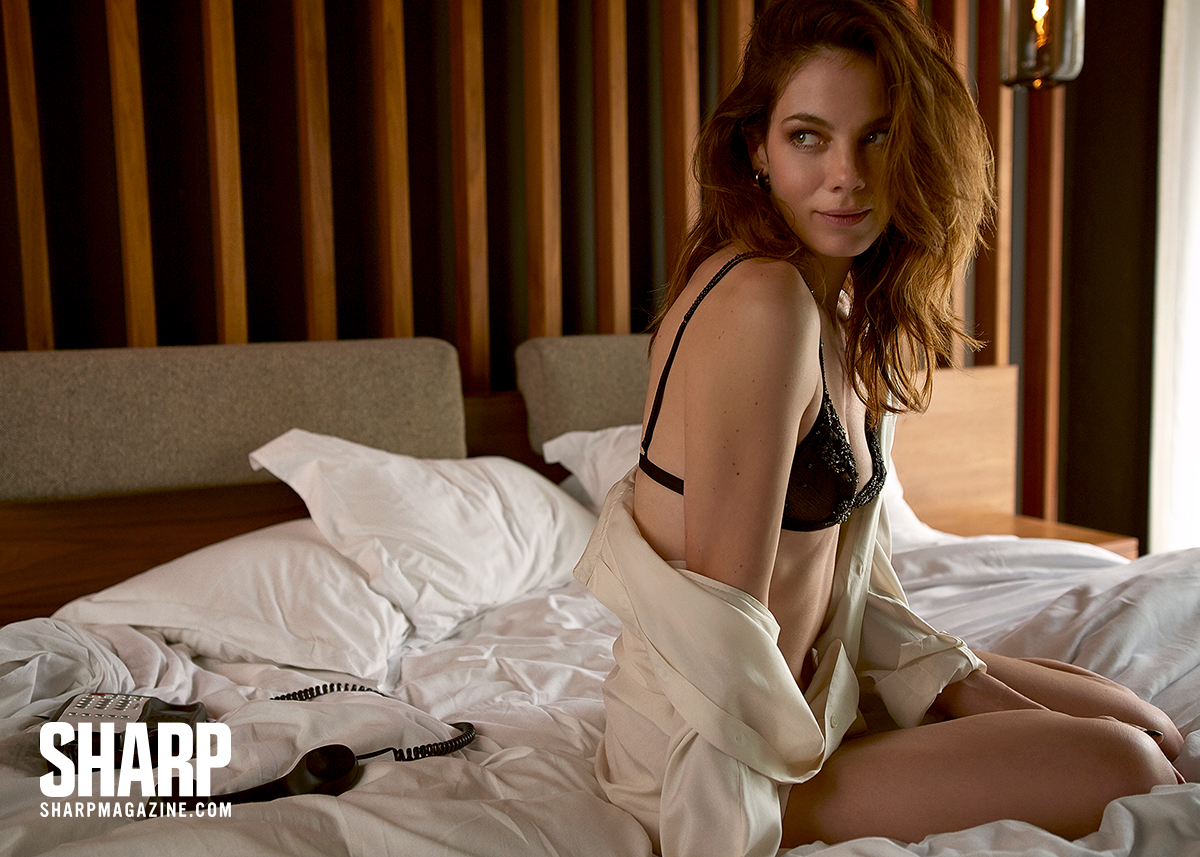
Although she’d been in some fine films before it (Kiss Kiss Bang Bang being the finest) I first saw Michelle Monaghan in 2007’s Gone Baby Gone, playing opposite the ever-sullen Casey Affleck. She seemed instantly familiar.
Skip ahead almost a decade, and Monaghan and I are talking about how we’re both adept at cleaning bathrooms, but not great at washing cars. Which moves, somehow, to a discussion of Boston accents (which she uses in her latest film, Patriots Day, alongside Mark Wahlberg), teamsters, and how the latter make good judges of the former. “They don’t know who I am,” she says, “so I decided to try out my Boston accent on them.” Which I say is a good idea, ignoring the fact that Boston teamsters definitely know who she is. (Whether they recognize her from Gone Baby Gone or the Nicholas Sparks gem The Best of Me is anyone’s guess.)
To say that any actress is your type disregards the fact that you’re thinking about her characters, not her. In fact, they actually have a word for it: typecasting. It’s a trap that’s especially easy to fall into with Monaghan since she’s often cast as supportive wives and girlfriends, at least in big budget movies. When she steps out and makes indies or works in television (True Detective or The Path), her roles get more complex and rounded. She gets to be less likeable.
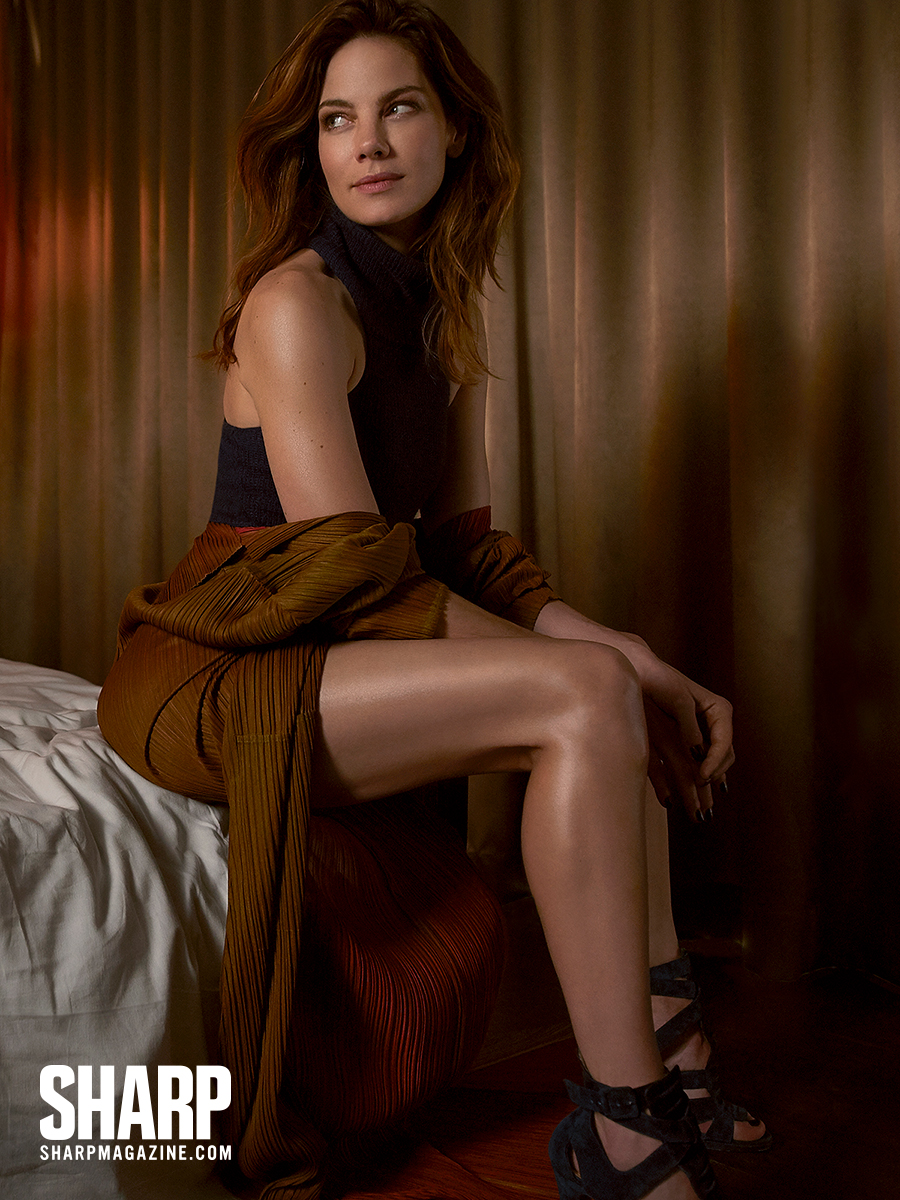
“That’s my least favourite word,” she says. “Because I’m not likeable. And if my friends were all likeable, they wouldn’t be my friends.” She’s proudest of those fully rounded roles, and she works hard for them. For Trucker, a small film from 2008, she even learned how to drive a big rig. “I told the director that if I couldn’t really drive one, I wasn’t going to be in the movie.” It’s admirable. Which, I suppose, isn’t the same as likeable.
I ask her a series of questions, all about remembering specific decisions and moments in her life. To push back against this typecasting theory, which is to say, to actually get to know her.
Her first memory: playing in a kiddie pool with a neighbourhood boy named Michael. “I remember having a crush on him,” she says, “I don’t know if I was weirdly young for having a crush on a boy, or if I was actually older than I remember. But this must have been when I was about four.” Things with Michael didn’t work though. He moved away. For her part, she decided that she’d need to move away from her small Iowa town after visiting Chicago in high school. The big city called. She went to journalism school there and supported herself by modelling.

“Looking back there were all these clues that I wanted to be an actor,” she says. She recalls how she would talk to herself in her mirror, or how she still remembers the visceral thrill of her first time on stage. “I think I went into journalism because that seemed like the closest thing to performance. We didn’t even have a movie theatre in our town, so being an actor seemed impossible.” The local news, on the other hand, was attainable.
And the more nostalgic she gets, the more she seems excited to share her memories, the more real she becomes. She’s a hard worker, driven, funny, and, frankly, damn good at her job.
Let’s be honest, she’s probably your type, too.
